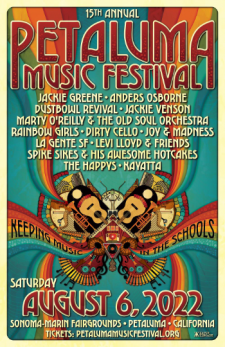
The Petaluma Citizens’ Assembly (CA) concluded its deliberations into the contentious city fairgrounds issue last week and presented its recommendations to the Petaluma City Council and to the 4th District Agricultural Association (the state board currently administering the fair). The board’s 50 year lease to run the fairgrounds property ends in 2023 and the Council and the Board could not agree on new terms going forward. The 55 acre parcel is owned by the city.
The assembly panelists met for over 80 hours over several weekends, hearing from experts and stakeholders, and engaging in a facilitated deliberative process moderated by Healthy Democracy. They were tasked by the city to answer the question: “How might we use the city’s fairground property to create the experiences, activities, resources, and places that our community needs and desires now and for the foreseeable future?”
The CA’s report, written entirely by the panelists, delineated the values, options, and visions that the panel had identified for the fairgrounds, and is accessible on the Healthy Democracy website. The panel process reflected the promise of deliberative democracy—to stand apart from traditional back room, political horse trading and instead focus on evidence and collaborative problem solving that places the community at the center.
The principal effect of the assembly’s work may not be apparent for several months, when the city has to decide on a course of action. The assembly’s effect won’t be measured by how creative, startling, or beautiful the eventual solution is. It will be measured by whether or not the city and the state board can come to an amicable resolution that permits them to move beyond their current deadlock. It’s already clear to the city council and the state board that the panelists are modeling a novel, structured, “yes, and” rather than “yes, but” process to solving problems, an approach outside usual political paradigms involving debate, power, conflict, and authority.
Moreover the assembly table incorporates a richness of lived experience unavailable in elected or appointed bodies, enabling panelists to think deeply about the complexity of the city and its issues. Will this example catalyze the governmental bodies to set aside politics and find common ground founded in the collective wisdom of everyday people from all walks who listen to each other?
Based on the example of past assemblies, we may hope. Stay tuned.
Filed under: Applications, Deliberation, Sortition | 4 Comments »




